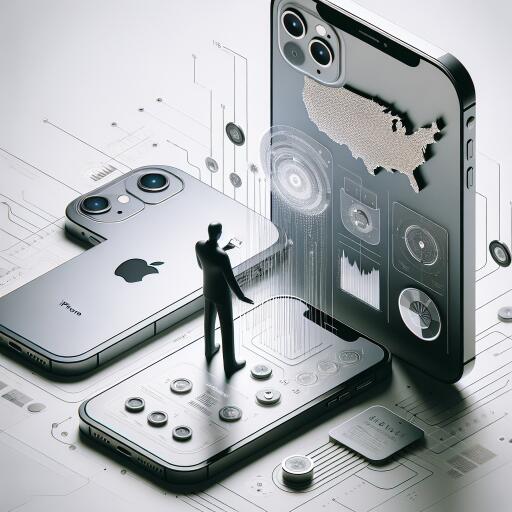Apple Ushers in New Era of AI with Latest iOS Updates: Insights from Ming-Chi Kuo
During the highly anticipated WWDC 2024, Apple unveiled a groundbreaking development in the realm of smart technology, introducing next-level artificial intelligence (AI) features designed to enhance their devices and iOS applications. This leap forward offers exciting possibilities for users, integrating advanced AI into their daily digital interactions. However, amidst the cheers, a notable caveat emerged, underscoring the relentless pace of technology evolution. Not every iPhone owner will partake in this new AI dawn; specifically, the iPhone 15 and iPhone 15 Plus models have been sidelined due to intrinsic hardware constraints.
Renowned Apple analyst Ming-Chi Kuo sheds light on this pivotal development, pinpointing the hardware disparities that delineate the iPhone 15 series. The crux lies in the varying hardware power between the standard iPhone 15 models, equipped with the A16 Bionic chip and 6GB of RAM, and their Pro counterparts, which boast the more potent A17 Pro chipset accompanied by 8GB of RAM. This stark divergence in memory allocation is not trivial; it poses a significant barrier to the standard models’ capacity to handle the sophisticated AI functionalities now coming into play.
Kuo emphasizes that the 6GB RAM integrated into the A16 Bionic chip falls short of the requirements needed to smoothly operate the advanced AI operations. This shortfall isn’t merely about raw power; it reflects an essential recognition of how AI, particularly the systems built on a large language model (LLM), necessitates substantial memory resources to function effectively and without interruption.
This revelation not only casts a spotlight on the importance of memory configuration in the age of advanced AI but also signals Apple’s commitment to upholding high hardware standards for its technology. It’s a bold stance that may surprise and perhaps disappoint some iPhone 15 and 15 Plus users, yet it starkly illustrates the rapid pace at which AI technology is evolving and the corresponding need for robust hardware to support these advancements.
The implications of Apple’s approach reverberate beyond its own ecosystem, setting a benchmark for the entire smartphone industry. As AI technologies grow more sophisticated, the memory capacity of devices becomes a pivotal factor in determining their potential to support these cutting-edge features. Through this perspective, Apple not only charts the course for its own advancements but also influences the broader trajectory of smart technology integration within the industry.
In sum, Apple’s strategic embrace of AI enhancements heralds a significant leap towards the deeper integration of smart technology into our everyday gadgets. While the exclusion of certain iPhone models from these latest upgrades may rankle some users, it underscores an inevitable truth: the landscape of smart technology is rapidly evolving, and with it, the demands on hardware to fuel these advancements. As we navigate this shifting terrain, staying abreast of the latest technological trends and developments becomes ever more crucial. With experts like Ming-Chi Kuo guiding the discourse, we gain invaluable insights into not only where we stand today but also the exciting possibilities that lie ahead.
Stay tuned for more updates on the latest in technology, offering a roadmap to navigating the ever-evolving world of smart gadgets and the AI revolution reshaping our digital lives.









